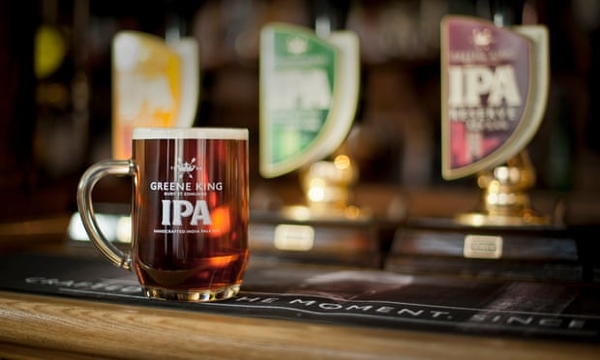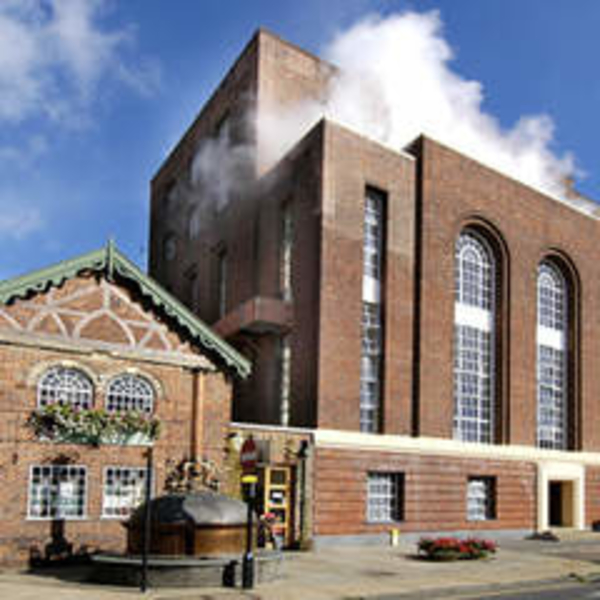Greene King: another one bites the dust
Added: Tuesday, August 20th 2019

When Fuller’s sold its brewery to Asahi of Japan earlier this year for £250 million, the question on many beer lovers’ lips was: “Whose next?” The answer wasn’t long in coming with Greene King’s announcement on 19 August that it had accepted a bid worth £2.7 billion from the Hong Kong based property developers CK Asset Holdings.
In every respect, this is a far more worrying sale. Asahi will continue to make beer at the Fuller’s site in Chiswick, West London. It’s a company with a long history of brewing. CK Asset on the other hand has no experience of brewing and its main – if not sole – reason for buying Greene King will be the ownership of a massive tied estate of 2,700 pubs, restaurants and hotels.
The Hong Kong company, which is registered in the Cayman Islands, is owned by Li Ka-Shing, one of the world’s richest men. He has a war chest of HK$60 billion to buy up properties and companies throughout the world. In Britain CK owns both Superdrug pharmacies and Three Mobile, has a stake in rail and water companies, and owns properties in some of the wealthiest areas of London.
It also bought 167 Greene King pubs that it leases back to the Suffolk brewer. This suggests the deal to buy Greene King has been in the pipeline for some time. The spur may have been the much-publicised visit to an English pub by Chinese president Xi Jinping in 2015 with then prime minister David Cameron. The pair supped Greene King IPA and the media coverage of the event turned the beer into a major export brand to mainland China.
But without doubt CK’s main interest will be Greene King’s properties. The key question is: How many will survive as licensed premises when they can be turned in shops, mini-markets, betting shops – a fast growing and lucrative industry – or private housing?
A business the size of CK will have no sentimental attachment to the British pub. It won’t see the pub as a community asset but as a bricks and mortar than can realise greater profits in a different form. A cynic could say that the Nutshell in Bury St Edmunds, officially Britain’s smallest pub, would make an ideal branch of Superdrug.
The worse-case scenario is that a large tranche of Greene King pubs could be sold or turned to other use. This is especially the case with many of the outlets Greene King acquired when it bought the Spirit chain of managed pubs from Punch Taverns. It was not an entirely happy marriage and Greene King has spent several years attempting to integrate the Spirit pubs. It’s also possible that the 25 Loch Fyne specialist seafood restaurants could be sold if a buyer can be found – the stumbling block could be that the British restaurant business is not currently performing well.

What is the future of the giant Westgate brewery in Bury St Edmunds (above)? It was founded in 1799 by Benjamin Greene and can boast such celebrated family members as novelist Graham Greene and Sir Hugh Greene, who was director general of the BBC before taking over at the brewery.
The Greenes and the Kings are now long gone and the company is listed on the Stock Exchange and has to satisfy shareholders rather than members of the ruling families. As a result of a series of takeovers and buying of brands, the Bury brewery produces not only its own long-running beers IPA and Abbot Ale but reformulated beers from Hardy & Hanson in Nottingham, Morland in Abingdon and Ruddles of Rutland. The Greene King version of Morland’s Old Speckled Hen is now a major national brand.
In the short to medium term it’s certain that brewing will continue at Bury as the new owners will need beer for its pub estate. But if the pub estate is drastically reduced then CK could follow the path of Brains, Everards, Thwaites and Wells and downsize to a smaller plant. It’s more likely, however, that the new owners would prefer to licence another brewer to make beer for them.
Existing brands could be culled as CK concentrates on IPA, Abbot Ale and Old Speckled Hen. Just as Asahi wants to turn Fuller’s London Pride into an international brand, CK will be keen to cash in on the success of IPA. The problem will be that, at just 3.6 per cent alcohol, Greene King IPA will not win approval from discerning drinkers who expect India Pale Ales to be stronger, paler and with greater hop character.
Will smaller brands survive? Greene King deserves praise for still producing XX Mild, even though sales are minuscule. The new owners and their accountants may consider it not worth the candle. Strong Suffolk Ale is a classic beer, a blend of two beers, one of which is aged for a year in oak casks. Will this be considered too fiddly and time-consuming to be bothered with?
A pilot brewery installed a few years ago at a cost of £750,000 produces trial and short-run beers and has brewed some excellent Heritage beers made with a revived malting barley called Chevallier that dates from the 19th and early 20th centuries. Their future must be in doubt. Again, that cynical voice can be heard saying that within a few years the pilot plant will be all that is left at the Westgate site.
Speculation aside, this is another sad day for British brewing. The many critics of Greene King who call it Greedy King and berate IPA as not being a true member of the style could at least approach it on level terms as British beer lovers talking to a British brewery.
And there’s no doubt that in recent years the company did listen to the critics and took steps to improve it range of beers. Now the critics will have to deal with a property company based in Hong Kong.
Inevitably the question is posed again: Who is next? Marston’s, of a similar size to Greene King, is in the frame and there are strong rumours that CK Asset Holdings is taking a close look at the Mitchells & Butlers pub chain.
On the evidence of the first eight months of 2019, rule nothing out.





